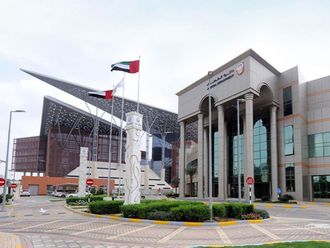Abu Dhabi: Human trafficking cases referred to courts declined between 2012 and 2013, the Abu Dhabi Judicial Department (ADJD) revealed on Wednesday.
In 2011, 37 human trafficking cases were referred to criminal courts by the Public Prosecution while 47 cases were referred in 2012.
Those found guilty of human trafficking can face life in prison and a fine of up to Dh1 million.
“These are situations where the prosecution identifies cases as human trafficking cases. Where prostitution is involved, a factor violence or coercion to persuade individuals to carry out sexual acts has to be present in order for it to be considered as human trafficking,” Hassan Mohammad Al Hammadi, head of the financial unit at the Public Prosecution Office, said.
“Defendants face life in prison in the following cases: if they instituted or lead a ring of organised crime, or if the victims of human trafficking were women, children or the disabled. Additionally, if the crimes were carried out by a person carrying a weapon, or by the spouse or family member of the victim, then a life sentence will be applied,” Al Hammadi said.
Confiscating documents such as passports in order to force individuals to commit sexual crimes such as prostitution, is also punishable by law.
In contrast, if individuals involved approach the authorities to inform them of illegal activities in human trafficking, and this information lead to the capture of additional suspects, then the court will look into exempting them from punishment.
The criminal court has seen a number of sex-trafficking victims arrive to the UAE under false pretenses of honest work at a hair-salon or even a household only to end up in a locked house with no passport, money and no means for outside communication.
Al Hammadi urged those within the UAE and abroad to constantly ensure that the person employing them is licensed by the appropriate authorities and that their visa is valid.
As of 2008, the Ewa’a shelter for women and children was set up in the capital to look after victims of sexual abuse. Two other Ewa’a shelters soon opened in 2011, in Sharjah and Ras Al Khaimah.
“Just last year, Shaikh Hamdan Bin Mohammed, the Crown Prince of Dubai ordered that a centre for male victims of human trafficking and sexual abuse be opened,” Al Hammadi added.












